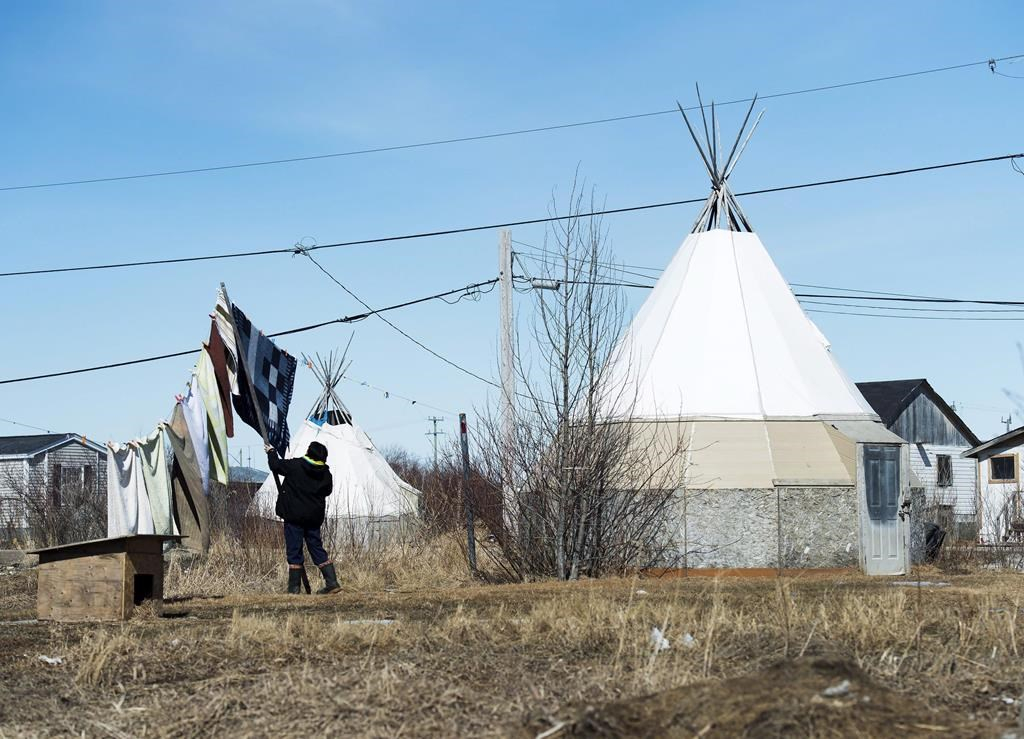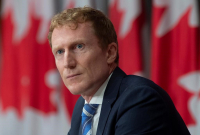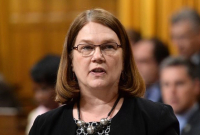Support strong Canadian climate journalism for 2025
Many Indigenous communities are struggling to cope with dual states of emergency, thanks to the pandemic and its effects on those with mental illness and addictions.
That's according to a new report from a committee of MPs who spent the last year studying the effects of COVID-19 on Indigenous populations in Canada.
Representatives from dozens of First Nations, Inuit and Metis communities and organizations painted a grim picture of the state of health and social infrastructure in their jurisdictions.
They noted many Indigenous communities were already dealing with mental health, addictions and suicide crises before the pandemic.
Now, people are more isolated than ever and access to mental health services has been hindered due to lockdowns, cancelled programming, closed public buildings and staff burnout.
Limited access to therapy and treatment centres has led to cases of substance withdrawal syndrome in some communities under lockdown and an increase in the number and severity of violent incidents in others.
"The anxiety of the pandemic weighs on all of us, and for First Nations these stresses have been compounded for many people due to pre-existing mental health concerns, often a result of intergenerational trauma," Alberta regional chief for the Assembly of First Nations, Chief Marlene Poitras, told the committee in November.
A number of First Nations reported increased drug and alcohol use and relapse.
"We needed some serious help to battle the drug and alcohol and domestic housing issues that were causing our cases to rise dramatically," Erik Blaney, executive council member of the Tla’amin Nation in British Columbia, told the committee.
"It was then that we realized we were in a dual pandemic, with the many opioid overdoses happening within the community."
Liberal committee chair Bob Bratina said he heard an overall "sense of desperation" from communities grappling with how COVID-19 has been exacerbating already precarious conditions.
Long-standing challenges involving a lack of adequate housing and clean dinking-water, staffing challenges as well as a lack of reliable internet and phone service are not new problems for these communities. But they have led to new concerns during the pandemic, including the impacts of these challenges on mental health.
Racism, food insecurity and other systemic issues also contribute to the need for more dedicated dollars and attention paid to the needs of Indigenous populations in Canada, Bratina said.
"It really all ties together, which sadly reflects on the fact that we were not providing a sustainable environment for people in remote and Northern communities."
The committee compiled a comprehensive list of over 40 recommendations, including calling for more dedicated emergency mental health supports and a review of federal funding mechanisms to ensure Indigenous communities have access to adequate, flexible and predictable funding for mental health and addictions treatment in their own communities.
The federal Liberals did commit $82.5 million in new funding for better access to mental health services during COVID-19, in addition to $425 million in existing annual funding earmarked for Indigenous mental health.
But some say this amount is not enough.
Carol Hopkins, executive director of the Thunderbird Partnership Foundation, said much of this funding is time-limited and temporary. More sustained and stable resources are needed she said.
Brenda Restoule, CEO of the First Peoples Wellness Centre in north-eastern Ontario, agreed, noting mental wellness supports and services in Indigenous communities have been "consistently underfunded compared to Canadians, resulting in a patchwork of supports and services that vary across the country.”
"Mental wellness teams and (addictions) treatment centres have already shifted services to virtual platforms, but the shift is hampered by poor connectivity and accessibility to technology as well as limitations in workforce capacity related to both reliable and culturally relevant information on ethics, privacy and liability, and access to supervision and IT support," Restoule said.
"Investments in connectivity, infrastructure, technology, sustained access to virtual care and human resources must happen more immediately. Otherwise, the gap in health inequity for Indigenous People will continue to grow."
The NDP is calling on the Trudeau government to forego the usual 120 days it has to respond to the committee's recommendations, urging Ottawa to instead get to work immediately on solving these issues.
This report by The Canadian Press was first published March 24, 2021.





Comments